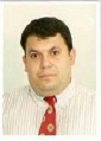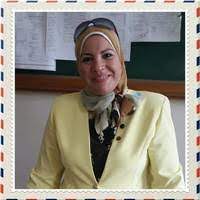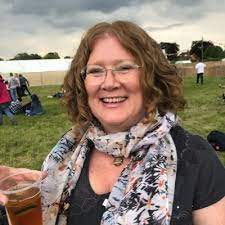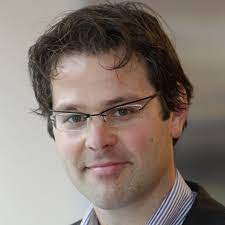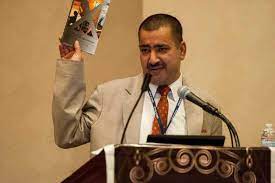Scientific Program
Keynote Session:
Title: Kidney impairment in a multiple gunshot injuries
Biography:
Ashraf Salah Ibrahim El Ghaname completed his Bachelor degree in Medicine (M.B.B.ch) from Cairo University, Egypt. He is currently working as an Faculty in Al Kasr Al Aini Medical School.
Abstract:
In my work as nephrology doctor in Magdishio Somalia (warzone) a male patient (solider was referred to me as a case of multiple gunshot mostly in the abdomen, and since around two weeks and was subjected to several operations to deal with his surgical case. Yet after two week of surgical treatment the surgeons noticed high urea & creatinine levels in that parent to whom they suggested to have a couple of dialysis session yet I preferred to deal directly with the patient regardless the recommendation I took history of the pt. and studied the fluid chart for him, To find the following:
The pt. is having 5 drainage tubes hanging out of his abdomen to drain the discharged with correspondingly 5 correspondingly 5 collection barges for these drains.
1. added all discharged fluids and combined it with the fluids the pt. is taking Intravenously I found that the total fluid intake is much less than the fluids drained as I may recall figures the patient was draining like 5 liters of discharged fluid and only takes 3 liters Intravenous and almost not taking anything by mouth as he is always between surgeries.
2.The patient come to my unit I started first by repeated changing the wound covering as I find it is rapidly soaked by pus that makes the pt. always feverish.
- I advised 4 times per day for changing the wound cover →fever disappears.
Title: SAUDI NURSING STUDENTS ATTITUDES TOWARDS PATIENT SAFETY AND THE INFLUENCING FACTORS: A QUANTITATIVE AND QUALITATIVE STUDY AT THE COLLEGE OF NURSING-JEDDAH
Biography:
Ebtsam Aly Abou Hashish has completed her PhD in the Faculty of Nursing at Alexandria University, Egypt. She is an Assistant Professor of Nursing Management and Leadership in College of Nursing at King Saud bin Abdul-Aziz University for Health Sciences, Jeddah, KSA, and an Assistant Professor of Nursing Administration in the Faculty of Nursing at Alexandria University, Egypt. She teaches many management and ethics courses for undergraduates and post graduates and as well as participated in supervising many theses and dissertations as an academic supervisor. She also acts as an Associated Trainer in the Faculty and Leadership Development Center (FLDC). She has published more than 15 papers in reputed journals and has been serving as an Editorial Board Member and Reviewer of reputed journals.
Abstract:
Title: LEARNING TO LEARN: AN EXPLORATION OF THE EXPERIENCE OF OVERSEAS NURSES UNDERTAKING HIGHER EDUCATION IN THE UNITED KINGDOM (UK)
Biography:
Michelle currently works a City, University of London as the Programme Director: Mentorship : Supporting & Assessing Learning in Practice Settings and Practice Lead for Adult nursing students. Michelle has previously worked as a Senior Lecturer at Buckinghamshire New University and Kingston University & St Georges University, London. This followed a successful nursing career as a District Nursing Sister and as an Intermediate Care Nurse. Michelle has taught a range of subjects latterly with a focus on Public Health, Culture & Diversity in Healthcare, Professional Nursing and Management of Long term conditions.Michelle has a MSc in Medical Anthropology and has a keen interest in culture, expressions of illness and how nurses cope with this. Michelle is currently in the final phase of her PhD exploring the experiences of Indian nurses coming to the UK to study and work.Michelle has an MSc Medical Anthropology
Abstract:
The consensus exists that nursing is a global profession where much emphasis is placed on the transference of skills and knowledge. In reality the situation is more complex as each society attributes its own cultural constructs onto what is meant by the term nurse and how a nurse should be educated. This presentation will detail aspects of an ethnographic study exploring the lived experience of Indian Nurses who have undertaken programmes of study in the United Kingdom (UK). It will also draw an experience of teaching nurses whose primary education was not in the UK. Existing research examines the impact on the nurse as they enter the work force but there is a dearth of literature available on the experience of overseas nurses’ experience of a UK based education. The study has revealed that the concept of ‘learning to learn’ is paramount in the delivery and success of overseas nurses undertaking an education programme away from their home country. The Indian nurses’ previous experience of didactic rote learning has little bearing on the ethos of a UK education with the emphasis on independent and reflective learning. The expectation is often on the overseas nurse to adapt their learning style to suit the institute they are attending. However the study has revealed the same should be said of the institute. In order to bridge this gap cultural sensitivity needs to be employed in the delivery of teaching and this should be a two way process between the institute and the overseas nurse with an emphasis on cultural competence, adaptation and partnership learning.
Title: HOW COULD TECHNOLOGIES HELP TO IMPROVE CARE AND ENHANCE NURSING JOY?
Biography:
Dirk F de Korne is currently the Deputy Director, Medical Innovation & Care Transformation at KK Women’s & Children’s Hospital (KKH). He also holds a position as Adjunct Assistant Professor at Duke-NUS Medical School Singapore and Erasmus School of Health Policy and Management, Erasmus University Rotterdam, Netherlands. In KKH, he is responsible for the hospitals’ overall innovation strategy and execution, including the alignment and facilitaiton of initatives and projects pertaining to cross-departments, multi-disciplinary collaborations towards patient service integration with relevent stakeholders.
Since 2003, he has focused on quality improvement and organizational strategy in hospital care. His implementation, research, and teaching work focusses on understanding the diffusion of quality and patient safety innovations and include business process and systems design, telehealth, human factors & ergonomics, and performance benchmarking. Before his move to Singapore in 2013, he worked as Quality & Safety Consultant at The Rotterdam Eye Hospital. As lecturer he has been teaching health care quality and organizational sciences as well supervised bachelor and master graduates. He holds a MSc in Health Policy & Management from Erasmus University Rotterdam and a PhD in Public Health from University of Amsterdam
Abstract:
Today’s hospitals are rich and complex socio-technical environments where technology and human actions are closely interwoven and patient’s health outcomes are co-dependent on the success of this interaction. Moreover, it is increasingly recognized that the patient journey takes mostly place outside of the hospital. As medical and nursing care becomes more technology-dependent, many fear that sensors, robotics, digitalization, machine learning and artificial intelligence will take the humanity out of health care. Do we need to worry? In this session, it is argued how ‘high tech’ can perform repetitive and redundant activities to enable nursing and medical staff to focus on ‘high touch’. Examples are taken from various area’s of women’s and children’s care, including smart health video consultation, pregancy chatbots, and real-time notifications for hand hygiene performance. If applied properly, new technologies could optimize patient health outcomes while enhancing nursing joy and career perspectives.
Title: LAPAROSCOPIC SURGERY; THE CURRENT SCENARIO
Biography:
Mushtaq Chalkoo is Working as Additional/associate professor at GMC Srinagar from 22 Oct,2017 Working as Assistant Professor Surgery at GMC, Srinagar from 2012- oct 2017 Worked as Permanent Lecturer Surgery at GMC, Srinagar from 2009 2012 Worked as Adhoc Lecturer Surgery at GMC, Srinagar from 2007 2009 Worked as Assistant Surgeon at SDH, Tangmarg from 2003,2007 Worked as Resident Surgeon at KSA from 2001 “ 2003 Worked as Senior Resident Surgery & Allied Specialties at SKIMS from 1997" 2001 Postgraduate Surgery, SKIMS from 1994, 1997 House Surgeon from 1993, 1994 Internship in GMC, Srinagar from 1992,1993.
Abstract:
Surgery is an art and this art of healing is learnt over a period of time. Early 1980’s brought a revolution in the field of surgery and there has been a continuous growth in this field due to rapid run of modifications and innovations that keep on happening for the patient good. Gone are the days when surgery would be abhorred by patients as a modality of treatment for their ailments. Currently patients look out for surgical treatments even for their medical ailments. Minimal access surgery and laparoscopy changed the whole scenario of surgery. The many do’s and don’ts got changed in surgery; amounting to up rise of a new religion in the field of surgery. The conventional surgery would explore a patient through a formal incision which would entail more of blood loss, paramount pain, exposure to lot of drugs, prolonged recovery time and lengthy hospital stay. Thanks to laparoscopy many surgical procedures have become ambulatory procedures, day care surgeries and office procedures. In today’s era, patient is operated through holes and video guided with a fast recovery, shortened hospital stay and early recovery. Laparoscopic staplers have revolutionised the dissection techniques in colorectal cancer surgeries. The staplers have not only reduced the operative time but also help in fashioning precise anatomises and decreased blood loss. There has been a tremendous advancement in instruementation, operational theatre technology and other surgical gadgets that have made the techniques and mode of surgery quite awesome. Laparoscopic management of incisional hernias have undergone a total metamorphosis and techniques like IPOM PLUS and component separation techniques have revolutionised the management of this
surgical ailment. There has been tremendous advancement in meshes used in incisional hernias that are patient friendly. Laparoscopic management of rectal tumours especially the low rectal tumours are now managed even without covering colostomies which many patients would not be ready to accept. The Robotic surgery is an extension of laparoscopic surgery and it has already invaded many fields of surgery with excellent outcome. What will be future in surgery cannot even be guessed.Telesurgery is already practiced at present. We have grown enormously in Kashmir valley with this patient friendly technique and laparoscopic gastrointestinal surgeries, especially laparoscopic colorectal and gastric surgeries and all kinds of hernias are managed laparoscopic ally at deptt.of surgery govt.medical college Srinagar. Every other day, there is a new blast of innovation in the field of laparoscopic surgery and it has become difficult to cope up with the advancement of this art of surgery. Technology has put us at cutting edge and it is mandatory to update yourself as we are medical teachers too. We at medical college have been working with laparoscopic surgery since late 1990’s and have come a long way ahead in this field. We have contributed our patents, techniques, modifications and chapters and publications in the field of laparoscopic surgery. The Chalkoo’S Point, The Chalkoos Single Finger Technique, The Chalkoos Modification, The Chalkoos Concepts etc. are worth mentioned here. We have presented our work nationally internationally as invited talks. It is a moral duty of all of us as medical teachers to decipher and disseminate this art of surgery to the upcoming young budding doctors who would carry on this legacy of surgery to the future progeny for the good of

